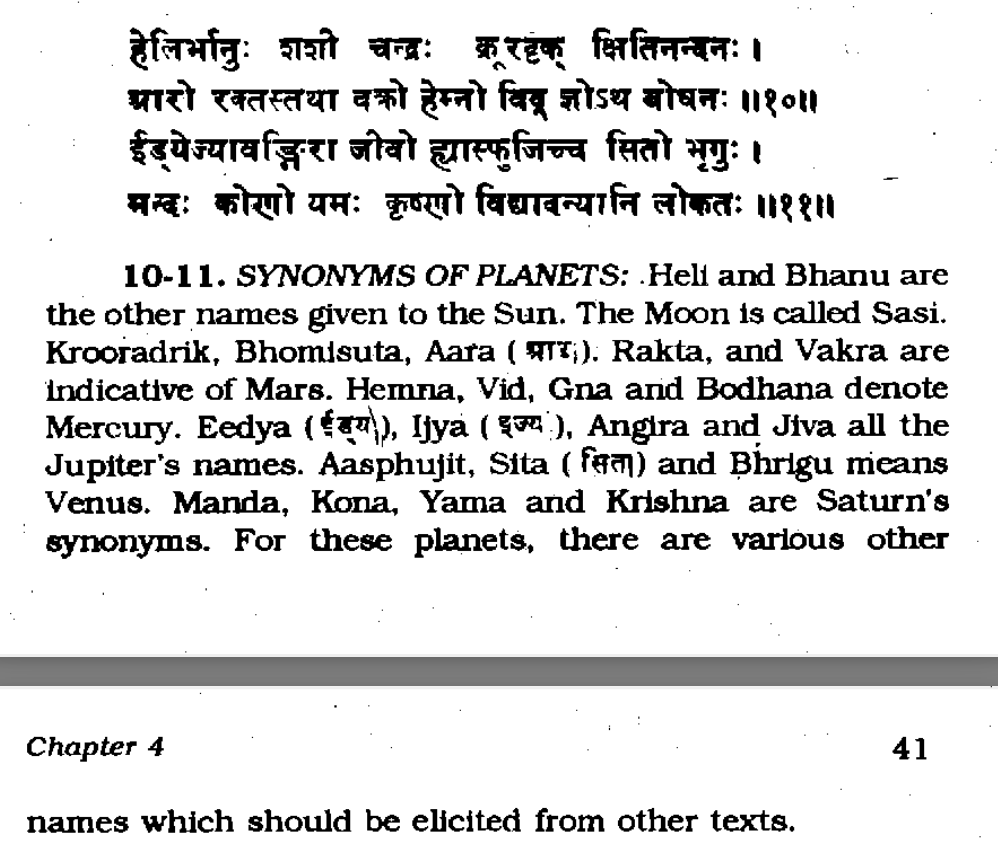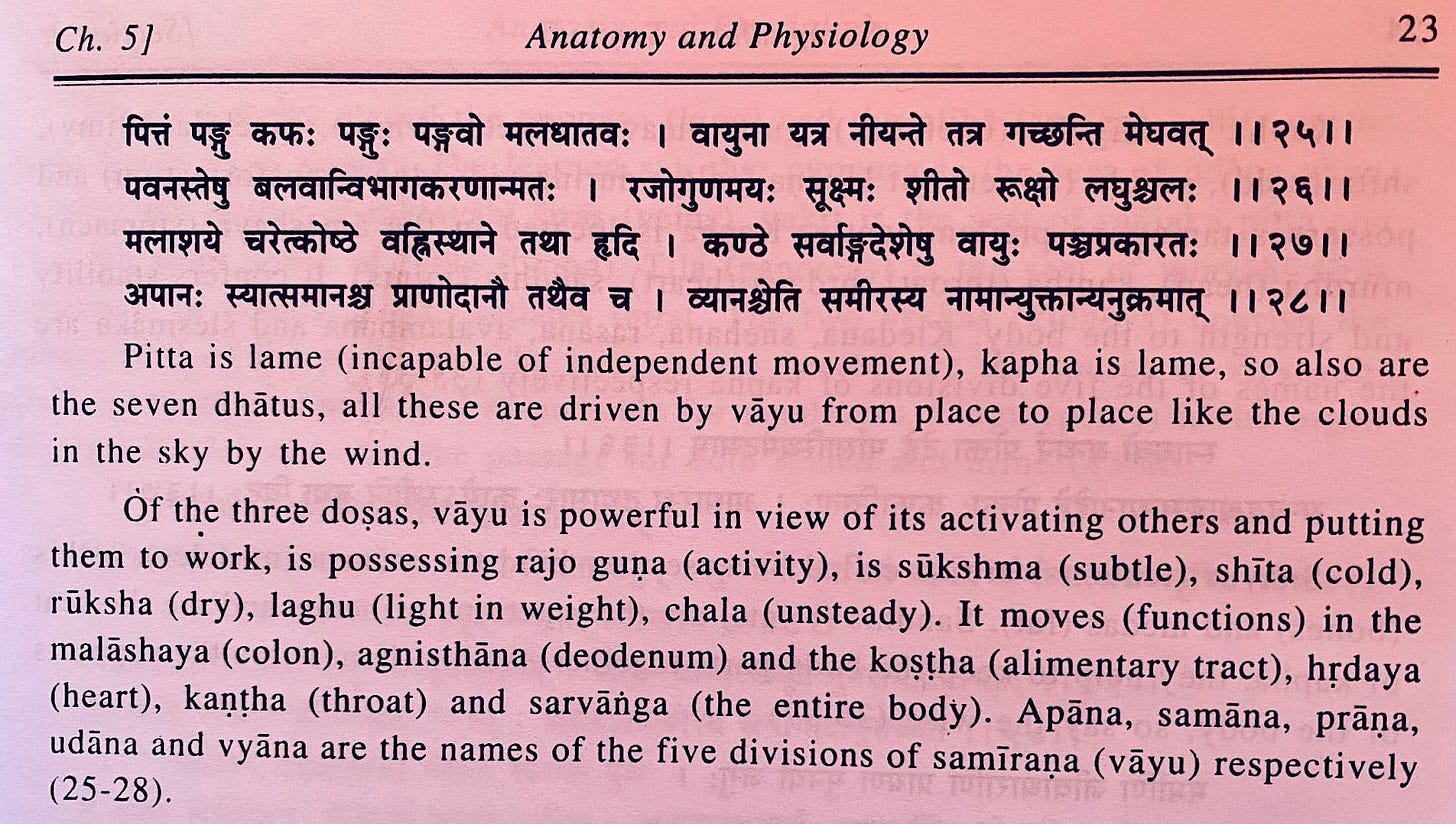The Names of Saturn
Each name of Saturn tells us a story...
In Sanskrit, each word has many meanings. This is because each Sanskrit word describes one property of the object or entity it represents. Each entity can have many properties (hence many Sanskrit words to describe it), and a property can be mapped to multiple objects (hence each word can have many wildly different meanings) - see more here.
For example, the word शुष्म etymologically comes from the root शुष्, which means to dry. Therefore, शुष्म can mean both Fire, Sun, and Wind as all of these three have a drying effect. Another word for Fire is अग्नि, which comes from the root अग्, meaning to move upward, describing the flame’s property of always moving up straight always. Even when you turn the match horizontally, the flame will continue to move up only!
In the same way, Saturn has many Sanskrit names, which also describes his qualities in a personified way.
The common name for Saturn in Jyotish texts is शनि:
शनि can come from two different words. Either शण्, meaning to give or शो, meaning to destroy. Here we have to go above the duality of these two phrases and look for a deeper meaning. For example, by destroying your ego, Saturn can give you Moksha. One local classmate I talked to, mentioned that at the end of the miserable 7.5 year Sade Sate period, Saturn gives you a big gift at the end. Similarly, when Dr. Satyajith was giving a tour of the local Shani temple in Udupi with a massive 23-foot Shani statue, he mentioned that when Shani troubles you, he becomes as big as that statue. But once you have understood his lesson of humbleness, removing ego / arrogance / pride, he gives you blessings / help / mentorship of the same size! In this way, Saturn is personified as both the giver and the destroyer.
According to the Amarakosha, Saturn has two names सौरि-शनैश्चरौ:
सौरि means one who is a descendant of the Sun. This refers to the mythological story of the birth of Saturn, with Sun being his father.
शनैश्चर is a combination of two words शनैस्, meaning “slowly”, and चर, meaning “one who goes”. In other words, this is describing Saturn’s quality of being the slow planet that takes the longest time to make one revolution around the sun. Looking from the perspective of Saturn representing misery, we can also connect this to misery being a long-term slow painful process. It can even be argued, that unless one attains Moksha, the whole human life is misery. Take in account cycles of rebirth, then multiple lifetimes can be full of misery. From Ayurvedic perspective, we can think of Pranayama, slowing down the breath and taking things slow to extend the life. In this way, Saturn forces us to slow down (for our own good!) even when we want to move full speed ahead. It is the planet that signifies longevity according to Jyotish texts, including Phala Dīpikā (2.7), Sārāvalī (4.27), and Uttara Kālāmṛta.
According to Sārāvalī (4.11), Saturn has several additional names:
मन्द means slow, dull, or lazy. This again may refer to the meaning similar to शनैश्चर - one who goes slowly, is lame. In Ayurveda, when one has मन्द-अग्नि, they have slow digestion and cannot digest much.
कोण means a corner or angle. In the Jyotish chart, when Saturn passes within the 90 degree angle of your moon, this is when the difficult 7.5 year Sade Sate period happens. It also means the sharp edge of a sword, a stick, a staff, or a club - perhaps describing the feeling of being in the influence of Saturn!
यम comes from the root word यम्, which means to stop or check. It is difficult to be under the influence of Saturn, but it also forces you to stop (slow down!) and check in which your life. Are you the person you should be? Are you serving society? Are you letting your ego / pride take over? It can also refer to restraint, control, penance, and purification. Those type of spiritual acts, or acts of Yoga, that require restraint. In this way, Saturn is a very spiritual teacher.
कृष्ण means black or dark. This may refer to Saturn being the son of the Sun and his shadow wife, which resulted in Saturn being of a very dark color. In a bigger sense, this can refer to the Tamasic nature of Saturn - one who puts you into darkness. It also means Iron, which is the metal of Saturn. And etymologically, it comes from the root कृष्, which means to attract the minds of men, which Saturn does!
The text Horā Sāra has additional synonyms:
The names कोण, मन्द, शनि, कृष्ण, यम, सौरि, and शनैश्चर have already been explained above as per my limited understanding. So here, I will attempt to explain the additional names:
पङ्गु means lame. This is again similar to शनैश्चर or मन्द, explaining that the reason Saturn moves slowly is due to his lameness or damage to his legs. In Sade Sate, it is common to get disease affecting the knees or legs or even breaking one’s legs or getting paralyzed from the waste down. The legs are the home of Vāta and Saturn is the planet that can create Vāta Vyadhi during its influential period. There is a famous shloka in Śārṅgadhara Saṃhitā (Section 1, 5 / 25) that uses the word पङ्गु:
This word again connects Saturn to Vāta. When Vāta is not functioning properly, then everything else (Doshas, Dhatus, Malas) in the body stops functioning properly!
सूर्यपुत्र means the son of the Sun, and is similar to Saturn’s name सौरि as described above.
छायासुत means the son of Chāya, the shadow of the Sun’s wife.
काल means time (as destroying all things), death, time of death. Saturn is a planet that kills your ego, which can cause a rebirth. In the Hindu tradition, the Saturn return (around age 30, when Saturn is back in the original position in your horoscope) and the age of 60, when both Saturn and Jupiter return to their positions as per your birth chart, are considered a time of rebirth. Since Saturn is the slowest planet, one cycle of it through your horoscope completes one cycle of your life when all planets have gone through at least one revolution.
There are likely many more Names of Saturn, but these are the ones that I personally found so far reading through the Jyotish texts. Note that all descriptions are based on my low understandings and are incomplete. As Dr. Satyajith explained the other day, Sanskrit is a living language that teaches you personally. This means that every person will get a different meaning from the same word. So I encourage to contemplate on these names of Saturn and come up with your own meanings about why the sages described Saturn by these Sanskrit words!
Note: the etymology and meanings of different words were taken from Kosha.Sanskrit.Today.




